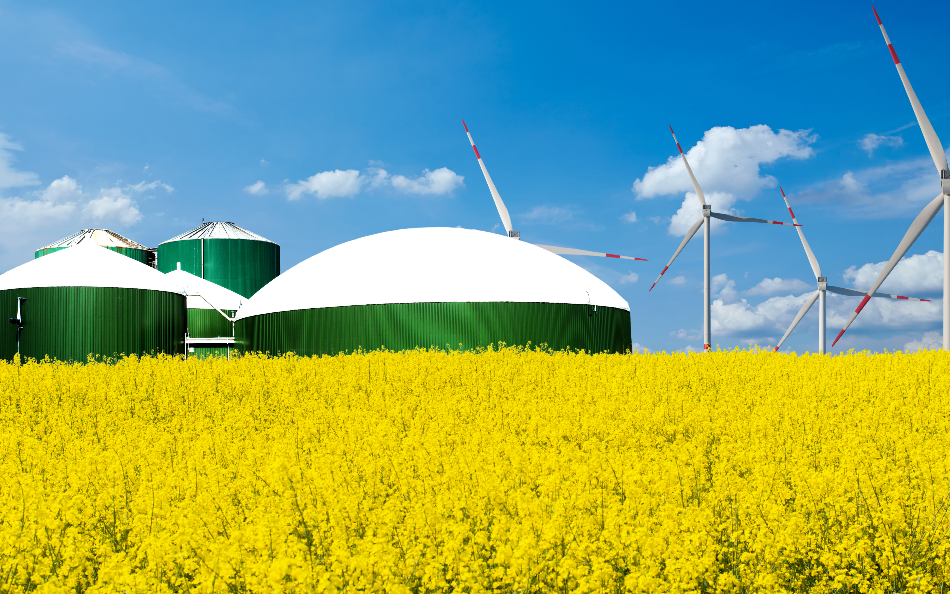Apr 15 2008

Image Credit: Natascha Kaukorat/Shutterstock.com
Article updated on 21/01/20 by Gaea Mirelle Miranda
Several promising alternative vehicle fuels offer benefits such as reduced emissions, increased energy security, and decreased reliance on foreign oil. Included in these emerging alternative fuels are biobutanol, biogas, biomass to liquids fuel, Fischer-Tropsch diesel, and hydrogenation-derived renewable diesel.
Biobutanol
Butanol that is manufactured using biomass feedstock is referred to as biobutanol. Similar to ethanol, biobutanol is a type of liquid alcohol fuel that can be used by modern gasoline-powered internal combustion engines.
The benefits of biobutanol are similar to ethanol. For instance, biobutanol can be produced from a variety of feedstocks domestically. The emission of greenhouse gases is also reduced as carbon dioxide captured during the growth of the feedstock crops balances the carbon dioxide released when biobutanol is burned.
Biogas
Also referred to as “landfill gas”, biogas is the gaseous product of decomposition without organic matter oxygen. The composition of biogas typically consists of 50% to 80% methane, 20% to 50% carbon dioxide, and traces of other gases such as hydrogen, carbon monoxide, and nitrogen.
Biogas is a domestic and renewable resource that reduces the need to use natural gas derived from non-renewable resources such as coal, oil, and fossil fuels. Using biogas also reduces greenhouse gas emissions by preventing the release of methane into the atmosphere.
Biomass to Liquids Fuel
Biomass to liquids is a process that describes the conversion of biomass to a range of liquid fuels such as gasoline and diesel. One major benefit of biomass-to-liquids fuels is their compatibility with currently existing vehicle technologies and fuel distribution systems.
Similar to other biomass-derived fuels, biomass-to-liquids fuels can be produced domestically from a wide range of feedstocks. Greenhouse gas emissions are also reduced because the carbon dioxide captured during the growth of the feedstock crops balances the carbon dioxide released when the fuels are burned.
Fischer-Tropsch Diesel
Fischer-Tropsch diesel is a type of synthetic diesel fuel that is manufactured through the conversion of gaseous hydrocarbons, such as natural gas, into liquid fuel. Fischer-Tropsch diesel can directly replace conventional diesel products without any modification to the existing fueling infrastructure or the diesel engine of modern vehicles.
Studies have shown that Fischer-Tropsch diesel could reduce regulated exhaust emissions from several diesel engines and vehicles, and the near-zero sulfur content of Fischer-Tropsch diesel allows the use of advanced emission control devices.
Hydrogenation-Derived Renewable Diesel
Hydrogenation-derived renewable diesel is produced from fats and vegetable oils. This alternative fuel can be used as a standalone product, but it could also be blended with petroleum. Hydrogenation-derived renewable diesel manufactured in such a manner is sometimes called second-generation biodiesel.
There are predictions that hydrogenation-derived renewable diesel will directly replace or be mixed with petroleum-based diesel, without modification to the fueling infrastructure or vehicle engines. Currently, studies are being done to test the adaptability of this alternative fuel product to modern engines.
Hydrogenation-derived renewable diesel could also be produced domestically from a wide range of feedstocks. Similar to its contemporaries, the product also enables the reduction of greenhouse gas emissions because the carbon dioxide captured during the growth of the feedstock crops balances the carbon dioxide released when the fuels are burned.